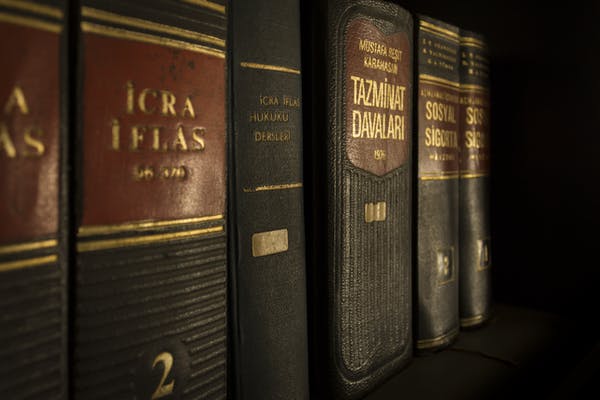Case-1- Decision of one High Court is not binding on the Other High Court but has a persuasive value-Pradip J. Mehta vs Commissioner Of Income … on 11 April, 2008
Judicial decorum, propriety and discipline required that the High Court should, especially in the event of its contra view or dissent, have discussed the aforesaid judgments of the different High Courts and recorded its own reasons for its contra view. We quite see the fact that the judgments given by a High Court are not binding on the other High Court(s), but all the same, they have persuasive value. Another High Court would be within its right to differ with the view taken by the other High Courts but, in all fairness, the High Court should record its dissent with reasons therefor. The judgment of the other High Court, though not binding, have persuasive value which should be taken note of and dissented from by recording its own reasons.
Emphasis Supplied
Case-2-There is nothing in the law which exalts the ratio of the decisions of the another High Court to the status of a binding law, nor could the ratio decidendi of those decisions be perpetuated by invoking the doctrine of Stare decisis-Valliamma Champaka Pillai vs Sivathanu Pillai And Ors on 24 August, 1979 Equivalent citations: 1979 AIR 1937, 1980 SCR (1) 354
There is nothing in the States Reorganisation Act, 1956 or any other law which exalts the ratio of the decisions of the Travancore High Court to the status of a binding law, nor could the ratio decidendi of those decisions be perpetuated by invoking the doctrine of Stare decisis. At best, they have a persuasive effect and not the force of binding precedents on the Madras High Court.
Emphasis Supplied
Case-3-Whether Income Tax Officer refuse to modify its order of in light of decision of another high court -Consolidated Pneumatic Tool Co. … vs Commissioner Of Income-Tax on 15 September, 1993 Equivalent citations: 1994 209 ITR 277 Bom
In view of the above decision of this court, we are of the clear opinion that the Income-tax Officer was justified in holding that the decision of the Calcutta High Court is not a binding precedent for courts, authorities or tribunals outside its territorial jurisdiction and on that basis the Income-tax Officer was right in refusing to modify its order in the light of the decision of the Calcutta High Court.
Emphasis Supplied
Case-4-There is no binding precedent of decision of one high court on other High Courts or on any subordinate Courts or tribunals falling within the jurisdiction of other high court- CIT vs. Thana Electricity Supply Co. Ltd. (1994) 206 ITR 727 (Bom)
The decision of one High Court is neither binding precedent for another High Court nor for Courts or tribunals outside its own territorial jurisdiction. It is well-settled that the decision of a High Court will have the force of binding precedent only in the State or territories on which the Court has jurisdiction. In other States or outside the territorial jurisdiction of that High Court, it may, at best, have only persuasive effect. By no amount of stretching of the doctrine of stare decisis, can judgments of one High Court be given the status of a binding precedent so far as other High Courts or Courts or tribunals within their territorial jurisdiction are concerned. Any such attempt will go counter to the very doctrine of stare decisis and also the various decisions of the Supreme Court which have interpreted the scope and ambit thereof. The fact that there is only one decision of any one High Court on a particular point or that a number of different High Courts have taken identical views in that regard is not at all relevant for that purpose. Whatever may be the conclusion, the decisions cannot have the force of binding precedent on other High Courts or on any subordinate Courts or tribunals within their jurisdiction. That status is reserved only for the decisions of the Supreme Court which are binding on all Courts in the country by virtue of Art. 141 of the Constitution.
Emphasis Supplied
Case-5-Statement of the law by a Division Bench of a High Court is considered binding on a Division Bench of the same or lesser number of Judges of the same High Court-Union Of India & Anr vs Raghubir Singh (Dead) By Lrs. Etc on 16 May, 1989 Equivalent citations: 1989 AIR 1933, 1989 SCR (3) 316
There is no constitutional or statutory prescription in the matter, and the point is governed entirely by the practice in India of the Courts sanctified by repeated affirmation over a century of time. It cannot be doubted that in order to promote consistency and certainty in the law laid down by a superior Court, the ideal condition would be that the entire Court should sit in all cases to decide questions of law, and for that reason the Supreme Court of the United States does so. But having regard to the volume of work demanding the attention of the Court, it has been found necessary in India as a general rule of practice and convenience that the Court should sit in Divisions, each Division being constituted of Judges whose number may be determined by the exigencies of judicial need, by the nature of the case including any statutory mandate relative there to, and by such other considerations which the Chief Justice, in whom such authority devolves by convention, may find most appropriate. It is in order to guard against the possibility of inconsistent decisions on points of law by different Division Benches that the rule has been evolved, in order to promote consistency and certainty in the development of the law and its contemporary status, that the statement of the law by a Division Bench is considered binding on a Division Bench of the same or lesser number of Judges. This principle has been followed in India by several generations of Judges.
The Hon’ble Court further observed that
And in Mattulal v. Radhe Lal, [1975] 1 SCR 127 this Court specifically observed that where the view expressed by two different Division Benches of this Court could not be reconciled, the pronouncement of a Division Bench of a larger number of Judges had to be, preferred over the deci- sion of a Division Bench of a smaller number of Judges. This Court also laid down in Acharaya Maharajshri Narandrapra- sadji AnandprasadjiMaharaj etc. etc. v. The State of Gujarat & Ors., [1975] 2 SCR 317 that even where the strength of two differing Division Benches consisted of the same number of Judges, it was not open to one Division Bench to decide the correctness or other-wise of the views of the other. The principle was reaffirmed in Union of India & Ors. v. Godfrey Philips India Ltd., [1985] 4 SCC 369..
Emphasis Supplied
Case-6-Law declared by highest court in the State is binding on authorities or tribunals under its superintendence-East India Commercial Co. Ltd. v. Collector of Customs (AIR 1962(SC) 1893 (at p.1905)
We, therefore, hold that the law declared by the highest court in the State is binding on authorities or Tribunals under its superintendence, and they cannot ignore it…….
Case-7-It is implicit in the power of supervision conferred on a superior Tribunal that all the Tribunal subject to its supervision should conform to the law laid down by it- Baradakanta Mishra v. Bhimsen Dixit (AIR 1972 SC 2466)
It would be anomalous to suggest that a Tribunal over which the High Court has superintendence can ignore the law declared by that court and start proceedings in direct violation of it. If a Tribunal can do so, all the subordinate courts can equally do so, for there is no specific provision, just like in the case of Supreme Court, making the law declared by the High Court binding on subordinate courts. It is implicit in the power of supervision conferred on a superior Tribunal that all the Tribunal subject to its supervision should conform to the law laid down by it. Such obedience would also be conducive to their smooth working; otherwise there would be confusion in the administration of law and respect for law would irretrievably suffer.
Emphasis Supplied
Case-8-Requirement of Judicial Decorum-Mahadeolal Kanodia v. Administrator General of West Bengal(AIR 1960 SC 936) (at p.941)
“Judicial decorum no less than legal propriety forms the basis of judicial procedure. If one thing is more necessary in law than any other thing, it is the quality of certainty. That quality would totally disappear if judges of co-ordinate jurisdiction in a High Court start overruling one another’s decisions. If one Division Bench of a High Court is unable to distinguish a previous decision of another Division Bench, and holding the view that the earlier decision is wrong, itself gives effect to that view, the result would be utter confusion. The position would be equally bad where a judge sitting singly in the High Court is of opinion that the previous decision of another single judge on a question of law is wrong and gives effect to that view instead of referring the matter to a larger Bench.”
Case-9-Binding Precedent of Judgement of another high court in case of provisional assessment rather than regular assessment-Siemens India Ltd. And Another vs K. Subramanian, Ito, Companies … on 30 March, 1982 Equivalent citations: (1983) 34 CTR Bom 23, 1983 143 ITR 120 Bom, 1983 13 TAXMAN 146 Bom
Where a High Court of another State has decided a point and the same point arises in the making of a provisional assessment, in my opinion, it is not open to the ITO to ignore that decision, whatever may be the position in the making of a regular assessment, for, in a provisional assessment, an assessee has no opportunity to satisfy the ITO about the correctness of that decision.
The High Court further observed that
The question is of the extent and nature of the powers of an ITO while making a provisional assessment in a summary manner. If the Tribunal has decided a case in a particular way and the same point arises in a provisional assessment, it is implicit from the nature of a provisional assessment that the ITO should not take a different view, because there is no opportunity to the assessee to convince the ITO why he should not take a view different from that taken by the Tribunal and no remedy is open to him to correct the view taken by the ITO. Whether what has been stated in Salmond on Jurisprudence would apply to regular assessments is not a question with which I am concerned, but it is not open to the ITO while making a provisional assessment to depart from the view taken by the Tribunal and strike out on a line of his own to the prejudice of the assessee.
Emphasis Supplied
Case-10-Where section was already declared ultra vires by a competent High Court in the country and an authority like an Income-tax Tribunal acting anywhere in the country has to respect the law laid down by the High Court, though of a different State, so long as there is no contrary decision of any other High Court on that question-
In view of this clear pronouncement of the Supreme Court, it is not controverted by Mr. Joshi on behalf of the revenue that an Income-tax Tribunal sitting at Madras is bound to proceed on the footing that section 140A(3) of the Act is non-existent in view of the pronouncement of the Madras High Court in the case of A.M. Sali Maricar [1973] 90 ITR 116. Actually, the question of authoritative or persuasive decision does not arise in the present case because a Tribunal constituted under the Act has no jurisdiction to go into the question of constitutionality of the provisions of that statute. It should not be overlooked that the Income-tax Act is an All-India statute and if an Income-tax Tribunal in Madras, in view of the decision of the Madras High Court, has no proceed on the footing that section 140A(3) was non-existent, the order of penalty thereunder cannot be imposed by the authority under the Act. Until contrary decision is given by any other competent High Court, which is binding on a Tribunal in the State of Bombay, it has to proceed on the footing that the law declared by the High Court, though of another State, is the final law of the land. When the Tribunal set aside the order of penalty it did not go into the question of intra vires or ultra vires. It did not go into the question of constitutionality of section 140A(3). That section was already declared ultra vires by a competent High Court in the country and an authority like an Income-tax Tribunal acting anywhere in the country has to respect the law laid down by the High Court, though of a different State, so long as there is no contrary decision of any other High Court on that question. It is admitted before us that at the time when the Tribunal decided the question, no other High Court in the country had taken a contrary view on the question of constitutionality of section 140A(3). That being the position, it is not possible for us to take the view that the Tribunal in Bombay, when it set aside the order of penalty, went into the question of the constitutionality of that section and gave a finding that it is ultra vires following the decision of the Madras High Court. What the Tribunal really did was that in view of the law pronounced by the Madras High Court it proceeded on the footing that section 140A(3) was non-existent and so the order of penalty passed thereunder cannot be sustained.
Emphasis Supplied










